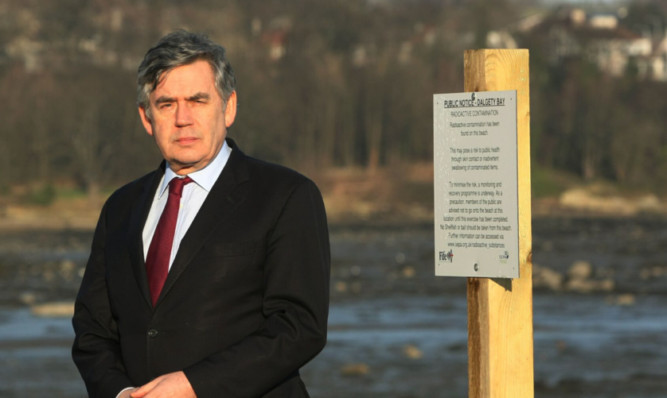Gordon Brown has called for a swift Ministry of Defence agreement to fund the Dalgety Bay radiation clean-up after the UK Government’s radiation watchdog highlighted imminent health risks.
The Committee on Medical Aspects of Radiation in the Environment has backed the Scottish Environment Protection Agency’s recent report into the long-running saga and has called for remedial action to be taken as soon as possible.
This, he claimed, could set up a head-on clash between the MoD and Sepa, after the ministry refused to back the agency’s report into radiation in the area.
Last week, Sepa’s executive director Calum MacDonald said he had been “surprised and disappointed” at defence minister Andrew Murrison’s claims Sepa had been “less than helpful” during the process.
During the late night adjournment debate, the ministry admitted it had “in all likelihood” introduced radium into the area where hots spots of radiation were first picked up more than 20 years ago.
It queried Sepa’s research, however, something which led the Kirkcaldy and Cowdenbeath MP to claim the MoD had insisted on trying to “pass the buck” for the contamination and refused to accept its findings.
Sepa had made clear that, before naming the MoD as the polluter of the beach, its approach and assessment had been endorsed by specialists, including the Dalgety Bay Particles Advisory Group.
After months of analysis and two major meetings in London, the Committee on Medical Aspects of Radiation in the Environment, which is charged with looking at health risks associated with radiation, has said it endorses the Sepa conclusions that a recovery programme is needed and has urged the Scottish Government to take steps to ensure this is undertaken quickly.
Comare said: “The sources at Dalgety Bay pose a potential risk to public health in terms of committee effective dose estimates.
“Given the dynamic nature of the contamination, the indefinite continuation of a monitoring and recovery programme, allied to demarcation of affected areas is not regarded as best practice.”
Comare argued that the Scottish Government should take steps to ensure effective remediation of the affected area is undertaken quickly and, in the meantime, the MoD monitoring programme should continue, with the coverage and frequency to be determined by the regulator.
The committee is also so worried about the number of sites where there is radiation contamination that it wants to create a UK-wide list of sites which are known to have been, or thought to be potentially contaminated with radium.
It is the latest twist in the battle to clean up the area contaminated with particles of radioactive radium-226.
